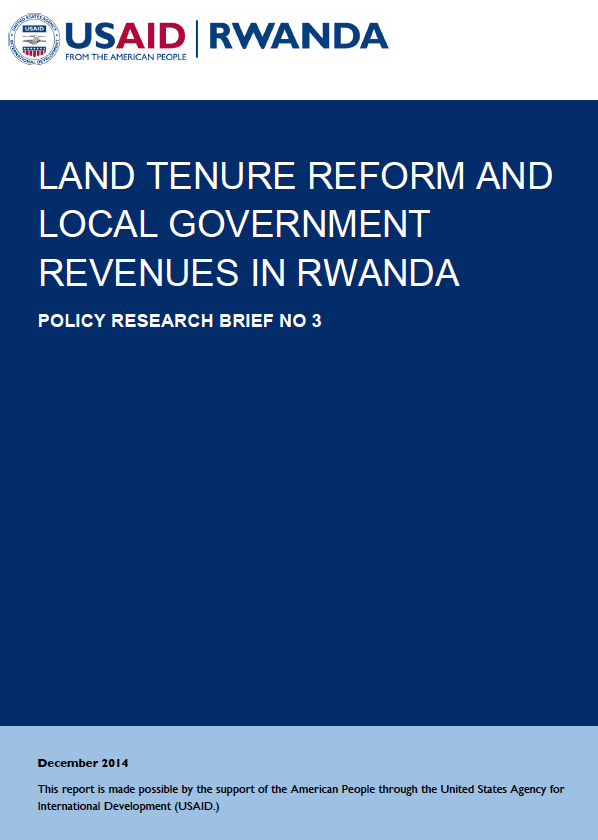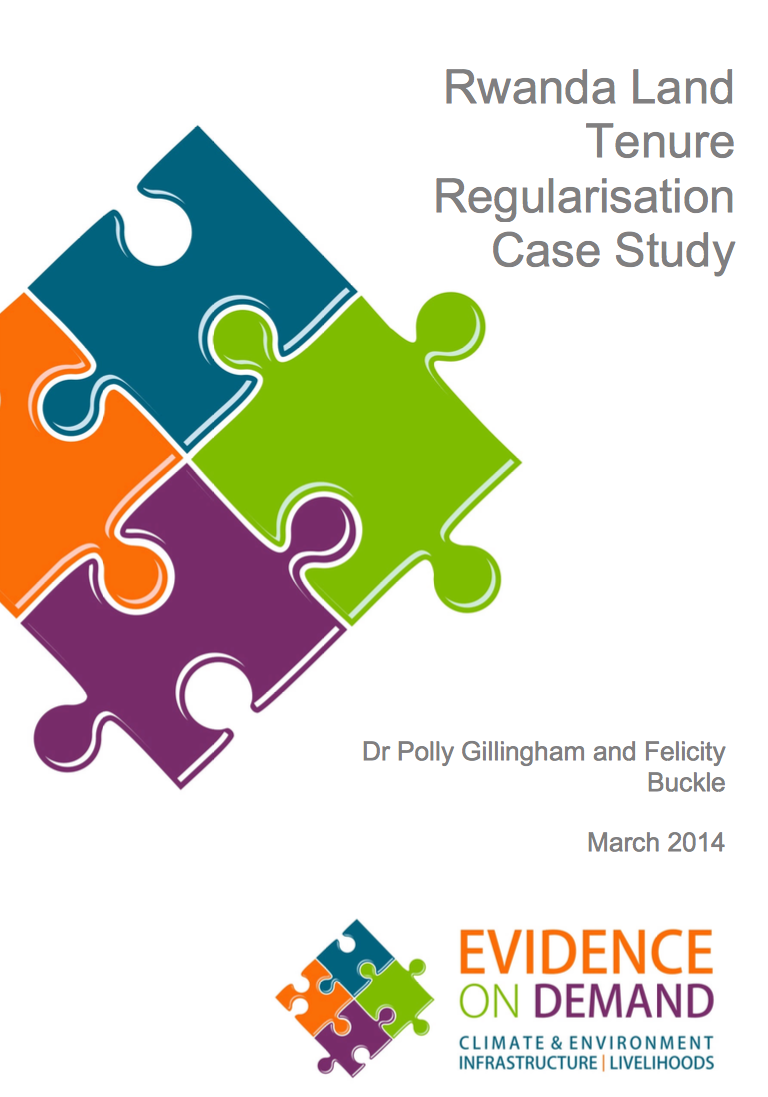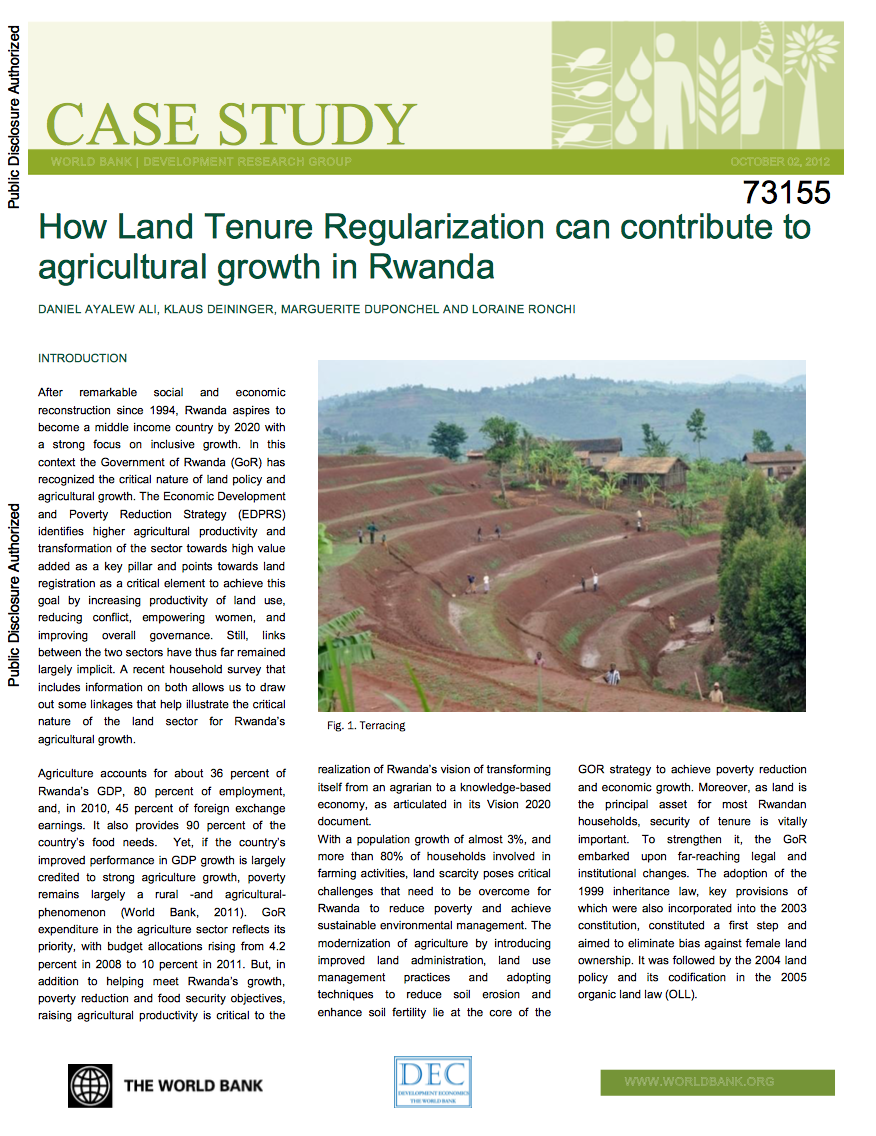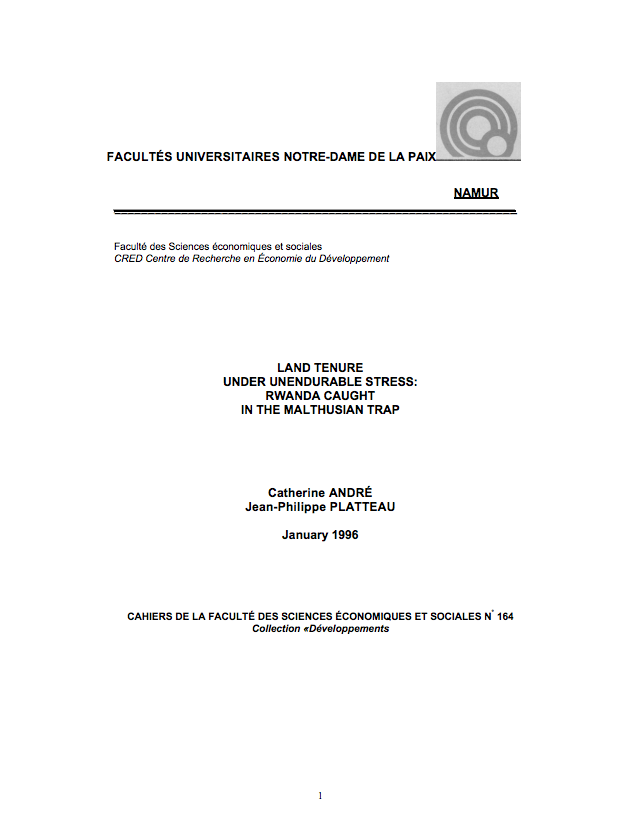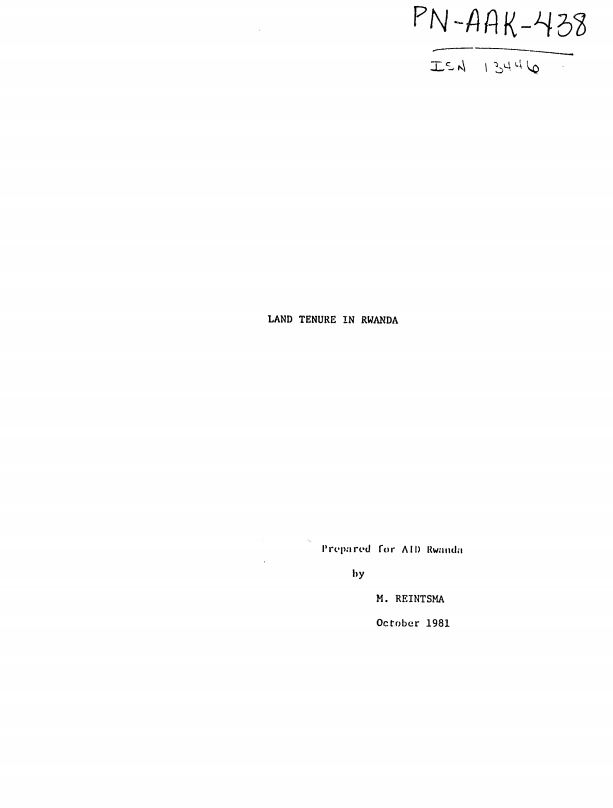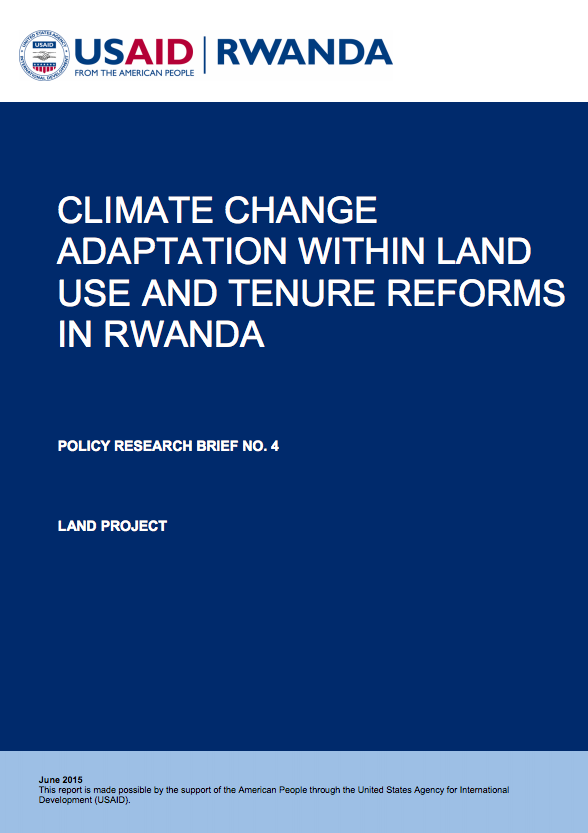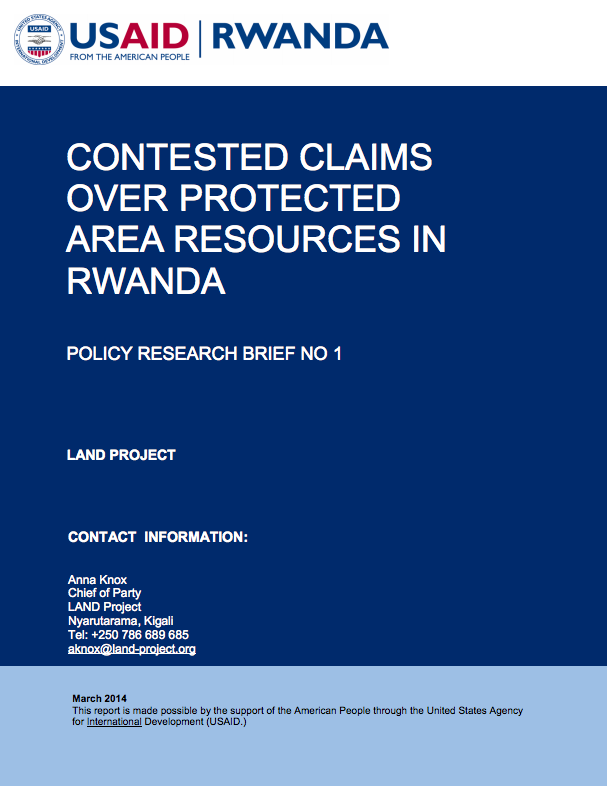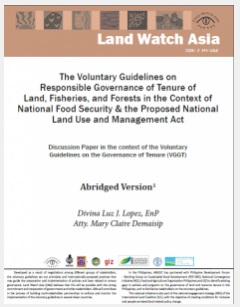Land Tenure Reform and Local Government Revenues in Rwanda
This policy research brief on land tenure reform and government revenue aims primarily to examine the effects of land tenure reforms on land-based revenue and to provide policy recommendations that would build on existing efforts developed to ease the process of paying and collecting various land revenue. The research topic was suggested by land sector stakeholders among other topics during the LAND Project’s Year 3 Work Planning Meeting, and was endorsed by the Rwanda Natural Resources Authority and LAND Project as an important research area.

